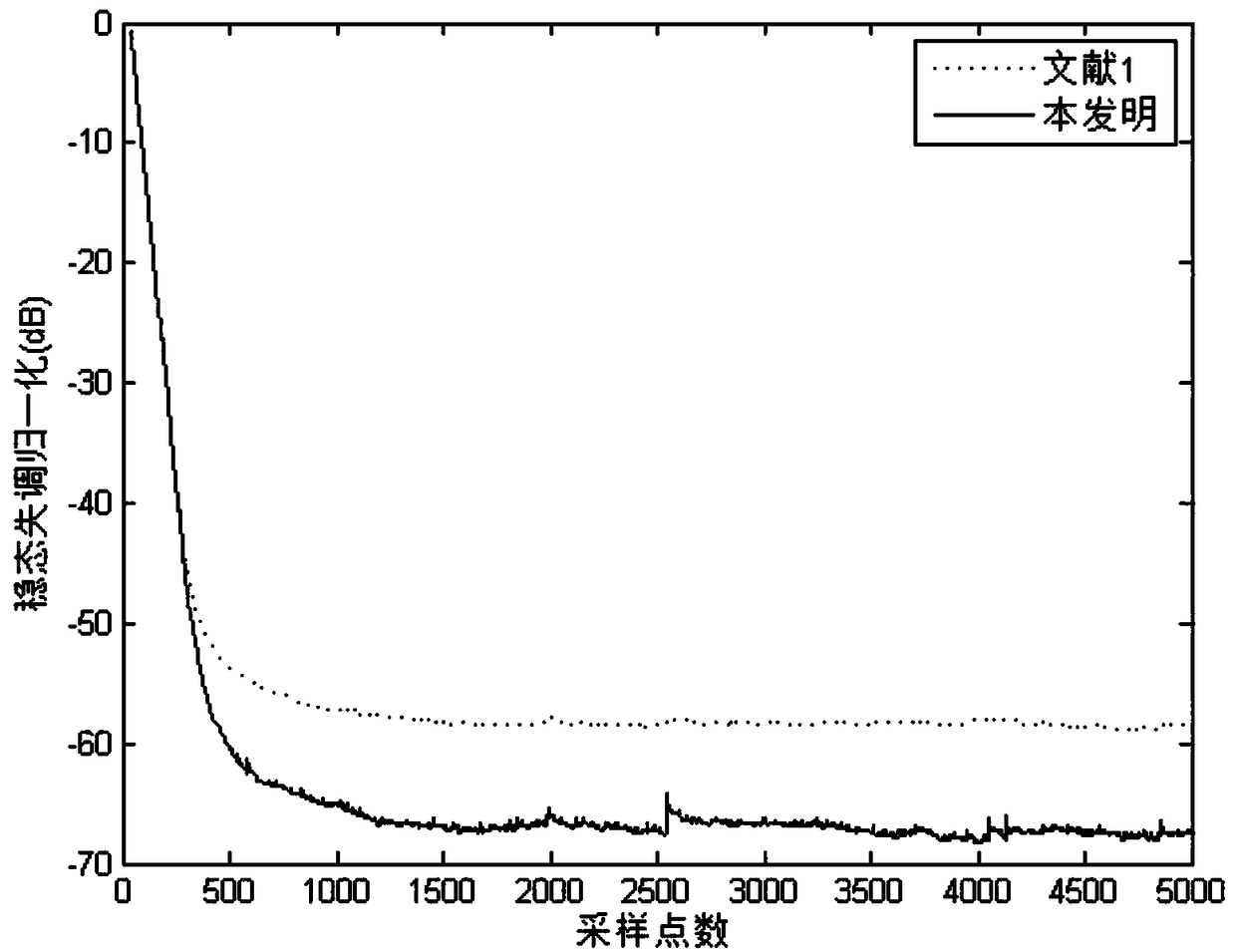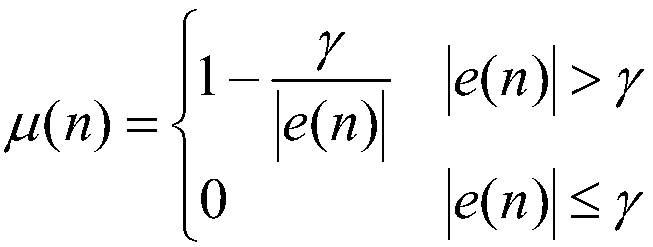A set-member adaptive echo cancellation method based on correlation entropy induction
A technology of echo cancellation and correlation entropy, applied in two-way sound reinforcement telephone system, telephone communication, electrical components, etc., can solve the problems of excessive change, large steady-state error, and the effect of echo cancellation needs to be improved.
- Summary
- Abstract
- Description
- Claims
- Application Information
AI Technical Summary
Problems solved by technology
Method used
Image
Examples
Embodiment
[0038] A specific embodiment of the present invention is, a kind of self-adaptive echo canceling method based on the member of correlation entropy induction, and its steps are:
[0039] A. Remote signal acquisition
[0040] Sampling the signal from the remote end to obtain the discrete value x(n) of the remote input signal at the current time n; (n-1),...,x(n-L+1), the input vector of the current moment n forming the adaptive filter, x(n), x(n)=[x(n),x( n-1),...,x(n-L+1)] T , where T represents the transpose operation, and L=512 represents the number of filter taps;
[0041] B. Echo signal estimation
[0042] Pass the input signal vector x(n) at the current time n through the adaptive filter to obtain the output value of the adaptive filter at the current time n, that is, the estimated value y(n) of the echo signal
[0043] y(n)=x T (n)w(n)
[0044] Wherein w(n) is the tap weight vector of the current moment n of the adaptive filter, w(n)=[w 1 (n),w 2 (n),...,w L-1 (n...
PUM
 Login to View More
Login to View More Abstract
Description
Claims
Application Information
 Login to View More
Login to View More - R&D
- Intellectual Property
- Life Sciences
- Materials
- Tech Scout
- Unparalleled Data Quality
- Higher Quality Content
- 60% Fewer Hallucinations
Browse by: Latest US Patents, China's latest patents, Technical Efficacy Thesaurus, Application Domain, Technology Topic, Popular Technical Reports.
© 2025 PatSnap. All rights reserved.Legal|Privacy policy|Modern Slavery Act Transparency Statement|Sitemap|About US| Contact US: help@patsnap.com



